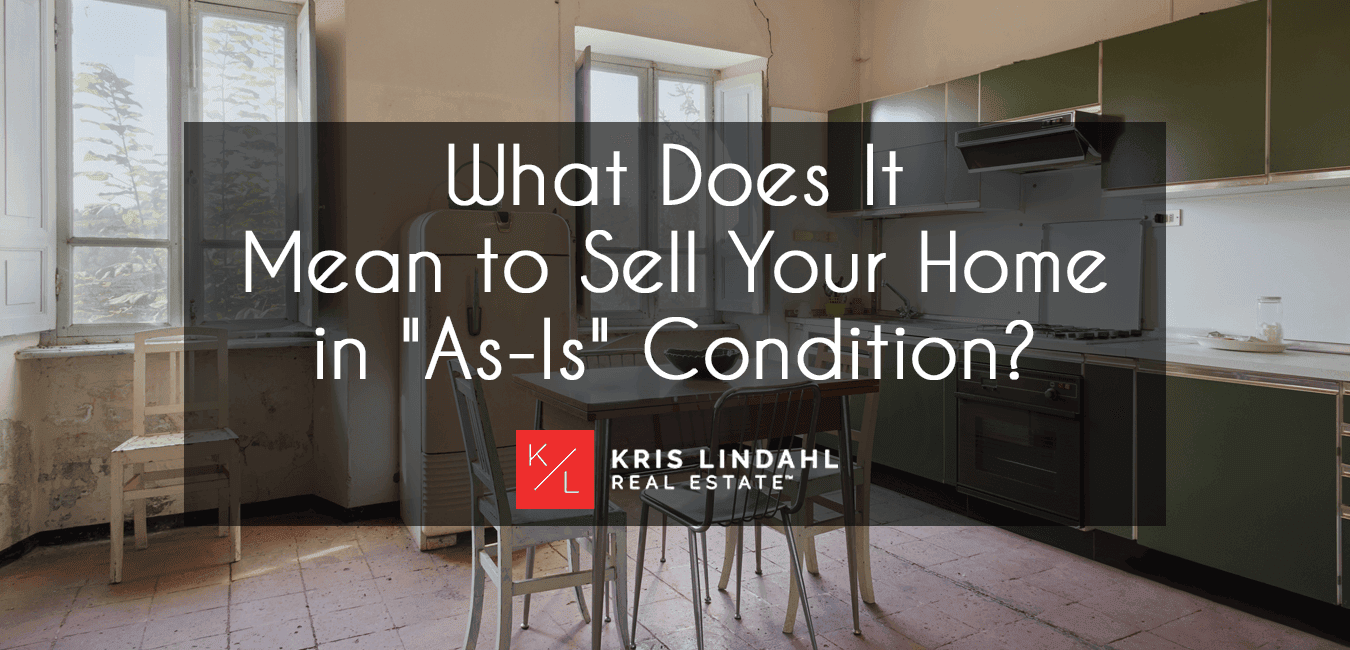
Selling a house can be a complex endeavor, and the process becomes even more intricate when choosing to sell your property in “as-is” condition. This term signifies selling the home in its current state, without undertaking any repairs or improvements prior to the sale. While an as-is sale may be attractive to homeowners eager for a quick move, it also presents its own unique challenges.
Understanding the “As-Is” Sale
Selling a home in as-is condition means presenting the property exactly as it is, with no improvements or repairs made prior to the sale. Buyers must accept the home in its current state. This approach can be appealing for sellers who are either unwilling or unable to invest in renovations, though it may also narrow the pool of potential buyers. Nevertheless, there are specific requirements for as-is sales that protect buyer safety and ensure seller accountability.
What Does “As-Is” Really Mean?
Selling a house as-is does not exempt the seller from disclosing information regarding the property’s condition. Sellers are still obligated to reveal any known defects or issues that may impact the property’s value or livability. However, the responsibility for any necessary repairs post-purchase falls to the buyer.
Why Would Someone Sell a House “As-Is”?
There are a few different reasons that a seller might opt to sell their property as-is. Here are some common considerations:
- Financial Constraints: The seller may not have the resources to make necessary repairs.
- Time-Sensitive Sale: The seller needs to sell quickly due to relocation, financial difficulty, divorce, spousal death, or other urgent circumstances.
- Inherited Property: The seller may have inherited a property they do not wish to maintain or improve.
- Distressed Property: The property may require extensive repairs that the seller is unwilling to undertake.

Pros and Cons of Selling a Home As-Is
Before opting to sell your home as-is, it’s crucial to carefully consider the advantages and disadvantages. While this strategy can simplify the selling process, it may also lead to a lower sale price and a more restricted pool of potential buyers. Let’s explore the pros and cons of as-is sales in greater detail.
Advantages of Selling As-Is
- Quicker Sale: Since no repairs or improvements are required, selling a house as-is can significantly reduce the time it takes to close a deal.
- Cost Savings: By selling as-is, you avoid the upfront costs of repairs, renovations, or updates that could otherwise eat into your profit.
- Less Hassle: There’s no need to manage contractors, deal with construction timelines, or worry about buyer requests for additional repairs after inspections.
Disadvantages of Selling As-Is
- Lower Sale Price: Homes sold as-is may sell for less than their market value because buyers factor in the cost of repairs and updates.
- Fewer Interested Buyers: Some buyers may be deterred by the idea of purchasing a property that needs significant work, especially if they lack the time, resources, or skills to manage renovations.
- Potential for Extended Time on the Market: While an as-is sale can be quicker, there is also a risk that your property could sit on the market if it fails to attract buyers quickly.
Preparing for an As-Is Sale
Selling your home as-is means forgoing repairs, but there are still effective steps you can take to prepare your property for sale and attract serious buyers. Thoughtful preparation can help you maximize your as-is sale price and facilitate a smoother transaction.
Pricing Your As-Is Home Correctly
One of the most crucial factors in selling a house as-is is determining the right price. Given that the property may have issues impacting its value, establishing a competitive price is vital. Overpricing can result in a longer time on the market, while underpricing may cause you to forfeit potential earnings.
Wondering how to settle on the right price? Here are some suggestions…
- Get a Comparative Market Analysis (CMA): A real estate agent can provide a CMA that compares your property to similar homes in your area that have recently sold. This analysis will help you understand the market value of your home, even in its as-is condition.
- Consider the Cost of Repairs: Buyers will often estimate the cost of necessary repairs and factor that into their offers. Be realistic about the condition of your home and how much it might cost a buyer to bring it up to standard.
- Hire a Professional Appraiser: For an unbiased opinion, consider hiring a professional appraiser to assess your property’s value.
Marketing Your As-Is Property
Effective marketing is essential for success. It’s important to attract the right buyers who are ready to invest in a property as-is. This target audience may include real estate investors, house flippers, or first-time buyers seeking a fixer-upper.
Here are some tips for effectively marketing an as-is property…
- Highlight Potential: Focus on the property’s potential rather than its flaws. Emphasize aspects like location, lot size, or unique architectural features that could appeal to buyers.
- Be Honest and Transparent: Clearly state that the property is being sold as-is in all marketing materials. This honesty will help attract serious buyers and avoid wasting time on those who may be put off by the as-is condition.
- Use High-Quality Photos: Even though your home may need work, good photography can still make a strong impression. Highlight the best features of the property, such as spacious rooms, natural light, or outdoor space.
Negotiating an As-Is Home Sale
Negotiating the sale of a property in as-is condition can be a sensitive endeavor. Buyers may leverage the property’s condition to negotiate a lower price, so it’s essential to be strategically prepared to respond to these offers.Handling Buyer Offers
When you receive offers on your as-is property, consider the following:
- Be Open to Negotiation: While you may have set a firm asking price, be open to negotiating with buyers. They may request a lower price based on the perceived cost of repairs.
- Consider Multiple Offers: If you receive multiple offers, weigh each one carefully. A higher offer may come with more contingencies, while a lower offer might be more straightforward.
- Work With an Experienced Agent: A real estate agent experienced in as-is sales can help guide you through the negotiation process and ensure you get the best deal.
Closing the Sale
After accepting an offer, the closing process for an as-is sale generally mirrors that of a traditional sale. However, be ready for the buyer to carry out a comprehensive inspection, which may result in additional negotiations or requests for concessions.
Here are some of the final steps that may be involved in closing an as-is home sale…
- Review the Inspection Report: The buyer will likely conduct an inspection. Review the report carefully, and be prepared to address any significant concerns a buyer may have.
- Complete Paperwork: Ensure that all required disclosures are completed accurately and honestly. Transparency is key to avoiding legal issues down the line.
- Prepare for Closing: Work with your agent, attorney, and title company to ensure all documents are in order and the closing process goes smoothly.
Sell Your As-Is Property Hassle Free
Selling a house in its current condition can be a practical choice for homeowners eager to move quickly or hoping to bypass the expenses and complexities of repairs. However, this approach demands meticulous planning, realistic expectations, and strategic marketing to ensure a successful transaction. By grasping the advantages and disadvantages, properly preparing your home, and collaborating with seasoned professionals, you can confidently navigate the as-is sale process and achieve your desired results.